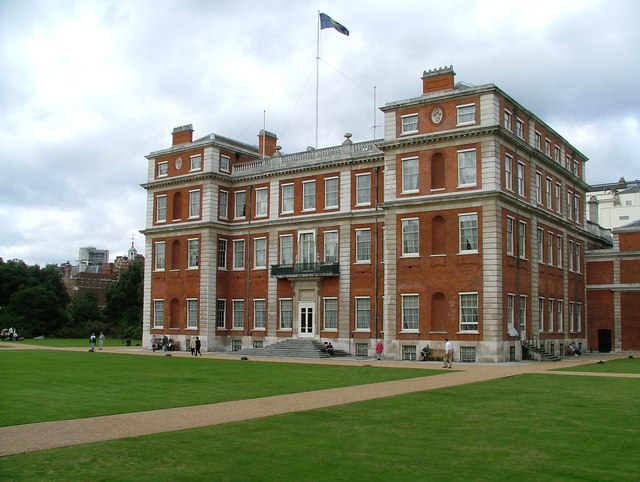by Professor Philip Murphy, Director of Institute of Commonwealth Studies
In what now appears to have been a concerted manoeuvre, first New Zealand and then Australia and the UK revealed they were withholding or in the case of Australia actually cancelling financial contributions to the Commonwealth Secretariat. They have done so in a very public display of no-confidence in the leadership of the current Secretary-General of the Commonwealth, Baroness Scotland, whose tenure in the post is up for renewal. If heads of government decide not to support her, she will be the first Secretary General since the Secretariat was created in 1965 not to serve at least two terms.
So the funding issue matters. But as some inquiries from the media we’ve received in recent days demonstrate, it isn’t particularly easy to find details about how the Commonwealth Secretariat is financed. So here’s a quick guide.
There are three main pots of money which make up what is generally referred to as the ‘Secretariat’ budget: the Secretariat fund, the Commonwealth Fund for Technical Cooperation (CFTC) and the Commonwealth Youth Programme (CYP) fund. The Secretariat and CYP funds are made up from the assessed (mandatory) contributions of the 54 member states. Meanwhile the CFTC budget is composed of voluntary contributions, and it is in this area of funding that Australia, New Zealand and the UK have recently turned off the tap. In addition, there are particular projects run out of the Secretariat which individual member states fund on a voluntary basis. There are also hidden subsidies, perhaps the most significant being the use as its headquarters by the Secretariat, rent free, of Marlborough House, a British royal palace.
So taking 2017-18, the most recent financial year for which we have a full set of figures available, the total amount due to the Secretariat fund from assessed contributions (the actual receipts were slightly higher due to advanced payments) was £16,830,137. The three biggest contributors were the UK, followed by Canada and Australia. Together, they provided about 65% of the Secretariat fund budget. The next six largest contributors (some way behind), were India, South Africa, Singapore, Malaysia and New Zealand and Nigeria respectively. Meanwhile the CFTC, the development arm of the Secretariat, received £12,464,792 in voluntary contributions. Again, the UK was by far the biggest donor, followed by New Zealand, India and Australia. Notably, Canada made no contribution at all. It pulled its funding some years ago in protest at the actions of Baroness Scotland’s predecessor, Kamalesh Sharma, and in particular, the decision to hold the 2013 Commonwealth Heads of Government Meeting in Sri Lanka. So the silence of the Canadian government over the last week or so certainly shouldn’t be taken as a vote of confidence in the Secretariat: Canada simply doesn’t have voluntary contributions to withhold. Finally, in 2017-18, the third pot of money, the assessed contributions to the CYP fund, totalled £3,555,561. If we add these three pots together, we come to a grand total of £32,850,490. This represents the best figure we have for the overall Secretariat budget for 2017-18.
Now there are some striking things about this. Firstly, the balance of assessed to voluntary contributions in the overall budget is 62% assessed to 38% voluntary. Both this balance and the overall sums involved have changed dramatically over just five years. In 2012-13 the overall budget comprising the Secretariat fund, CFTC and CYP fund was just over £50.7 million, with just under £31.6 million being made up by voluntary contributions to the CFTC. So that’s a balance of 38% assessed to 62% voluntary, an exact reversal of the 2017-18 picture. Incidentally, 2012-13 was the last financial year in which Canada contributed to the CFTC and its contribution was highly significant – nearly £6.5 million, second only to the UK in terms of the biggest donation by a member state. In effect, the major donors have been reluctant to provide voluntary funding for an organisation in which they no longer have much confidence,
The crisis of confidence for the Commonwealth Secretariat is not new. In its current form it began under Scotland’s predecessor, Kamalesh Sharma. Shortly after Scotland took office the UK Department for International Development (DFID) published a damning report on the performance of the Commonwealth in the area of international development, and ministers threatened to withhold funding if the situation did not improve. Patricia Scotland can hardly be blamed for this. But at the very least, the Secretariat did not respond swiftly or decisively enough to this glaring warning sign.
When an organisation enters this sort of downward spiral in both its funding and in the confidence displayed in it by its major donors, it is incredibly difficult to steady it. In a purely practical sense, when the annual budget of a major international organisation drops towards a paltry £30 million, even relatively small financial hits can be significant. Over the course of 2018 for example, the Secretariat lost two separate employment tribunal cases brought against it by former senior members of staff, costing it hundreds of thousands of pounds in compensation and legal fees. Whereas a better funded organisation could comfortably absorb these sorts of setbacks, the Commonwealth Secretariat no longer can. And when confidence in an organisation goes, every internal problem of this kind is taken as further evidence of its terminal decline. Whatever the decision heads take about the future of Baroness Scotland, the Secretariat will find it extremely difficult to recover from the current position.


Recent Comments